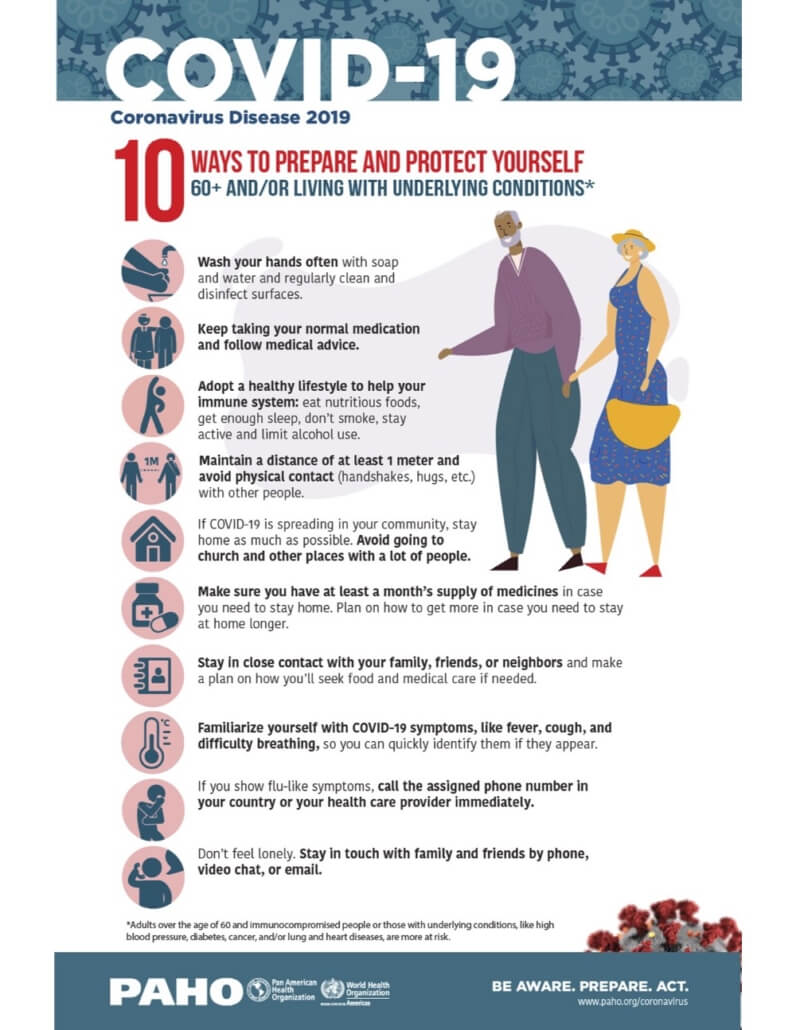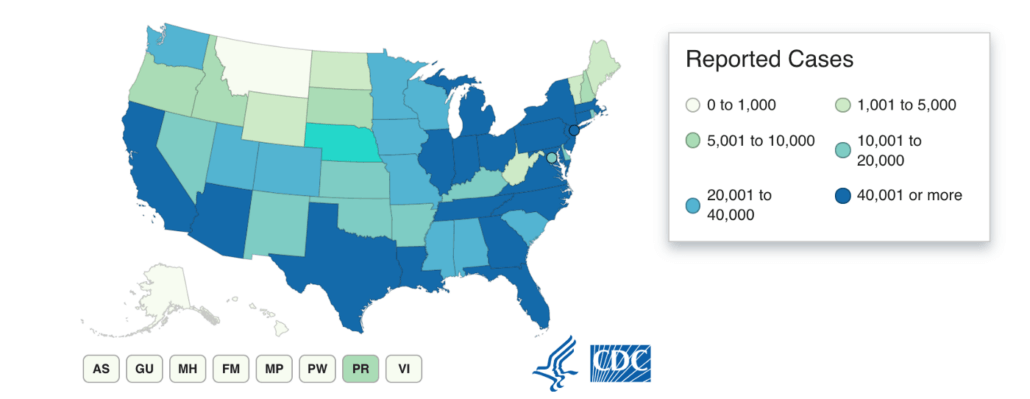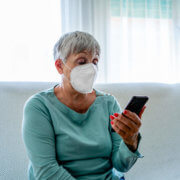COVID-19 Updates: Deciding to Go Out?
As communities and businesses continue to reopen nationwide, many older adults are wondering how best to approach this “new normal.” In this post, we will share some thoughts about what to consider when venturing back out into society and resuming activities that are a part of your daily life.

As a reminder, if you have COVID-19, are having symptoms associated with COVID-19 or have been in close contact with someone who has COVID-19, it is important to stay home and away from others. If you do decide to go out, continue to protect yourself by practicing prevention measures such as hand washing, social distancing, wearing a face covering and sanitizing/disinfecting surfaces.
What to Consider Before Going Out
Whether it is going to the grocery store, restaurant, doctor’s office, retail store, etc., there are some important factors to consider when venturing out. According to The Centers for Disease Control and Prevention, the following are some questions you may consider when determining your level of risk in going out in the community:
How many people will you interact with?
- The more people you interact with, the greater risk
- Engaging with new people (those you do not live with) raises your risk
- Being in a group of people who are not social distancing and/or wearing face coverings raises your risk
Can you keep 6 feet of space between you and others? Will you be outdoors or indoors?
- Following the recommended social distancing guidelines is especially important for people who are at higher risk for illness (older adults and those with preexisting medical conditions)
- There is greater risk for infection in indoor spaces as there is less ventilation and it may be harder to be socially distant
What’s the length of time that you will be interacting with people?
- Spending more time with people who may be infected increases your risk of becoming infected
- Spending more time with people may increase their risk of becoming infected if there is any chance that you are already infected
Getting Medications and Doctor Visits
Having access to your medications and continuing regular doctor visits are both key factors to healthy aging. Unfortunately, COVID-19 has made this difficult for many aging adults. Whenever possible, it is highly encouraged that aging adults seek their treatment virtually and through delivery services.
If it is necessary to see a doctor in person or go to the pharmacy to pick up prescriptions, it is important to protect yourself and others. The Centers for Disease Control and Prevention provides the following recommendations:
- If you think you may have COVID-19, be sure to notify your provider prior to your appointment and follow their instructions
- Stay at least 6 feet away from others while inside the office/pharmacy
- Wear a face covering
- Use a contactless payment method if possible. If this is not possible, sanitize your hands after paying with a credit card, cash or check
- Check with your doctor and/or pharmacist to determine if you are able to get a larger supply of your medications, so you do not need to visit the pharmacy as often
- Plan to order and pick up all of your medications at the same time
Staying Informed
Regulations related to COVID-19 are primarily being handled at the state-level. Stay-at-home orders and business re-openings vary by state, so it is important to stay up to date on your state’s regulations. The CDC provides a directory of State & Territorial Health Department Websites, which will help you determine the most up-to-date COVID-19 information in your area. It is also important to monitor the number of cases and death tolls in your state; please visit the CDC’s COVID Data Tracker to explore the data by state/county.

Again, if you are having symptoms associated with COVID-19 or have been in close contact with someone who has COVID-19, you should self isolate and contact your healthcare provider to discuss next steps. The following are a list of nationwide testing site locators:
COVID-19 Testing Site Finder by Address
COVID-19 Testing Site Finder by State
Moving Forward
We understand that some of you may be just starting to consider venturing back out into the community and some of you may have already started this process. Wherever you are in this journey, we hope to help guide you in making the best decisions for yourself and those around you. Each and every person has a different level of comfort during this pandemic. It is important to be kind to yourself and others, and to remember that we are all learning during this time. For more information, support and resources regarding aging adults during the COVID-19 pandemic, please visit our additional blog posts: COVID-19: What Older Adults Need to Know and Care in Crisis.
Don’t forget to follow Assured Allies on Medium, Facebook, Twitter, and LinkedIn!









